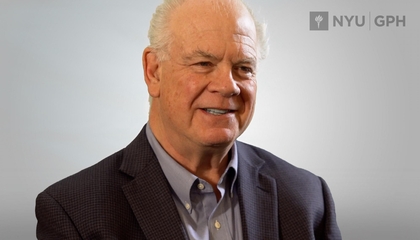GPH-GU 2152 Introduction to Agent-Based Modeling (3)
Prof. Joshua Epstein and Prof. Erez Hatna
Wednesdays 4:55-6:35
How do local (micro-scale) interactions between individuals generate global (macro-scale) societal patterns--of disease, of conflict, of inequality? Agent-based modeling (ABM) is a powerful new way to address such questions computationally. In ABMs, software individuals and the interactions between them are explicitly represented, and these local interactions generate the global patterns we wish to explain, and to alter through policy, epidemics being prime examples. This course introduces students to ABMs from epidemiology, public health, and social science. It teaches students without prior programming experience to build, analyze, extend, test, and present simple models in NetLogo.
GPH-GU 2205 Gun Violence in America: Public Health Politics, and Pragmatism (3)
Prof. Ted Alcorn
Tuesdays 4:55-6:35
More Americans have been killed with guns since 1968 than died in all the wars since the country’s founding. Addressing this crisis means solving tenacious problems of both public health and politics. In this course we will examine the main causes of firearm injury, the political actors that have influenced America’s public policy response, and the ways all of this connects to the underlying beliefs and behaviors that define American’s relationship with guns.
GPH-GU-2265 Climate Change and Global Public Health
Prof. William Rom
Thursdays 6:45 - 8:25 p.m.
This course is about global warming, which is posed to be the most significant public policy challenge of the 21st century. We will cover the climate change science, public health impacts, ecological consequences, global food and security, and policy options. Adaptation strategies to control outcomes of storm flooding, increased ozone and heat waves, drought, and threats to biodiversity and mitigation with renewable energy promotion will also be covered. Local solutions will be evaluated from city governments, states, and various countries, as well as a discussion about global treaties such as the "United Nations Framework Convention on Climate Change."
